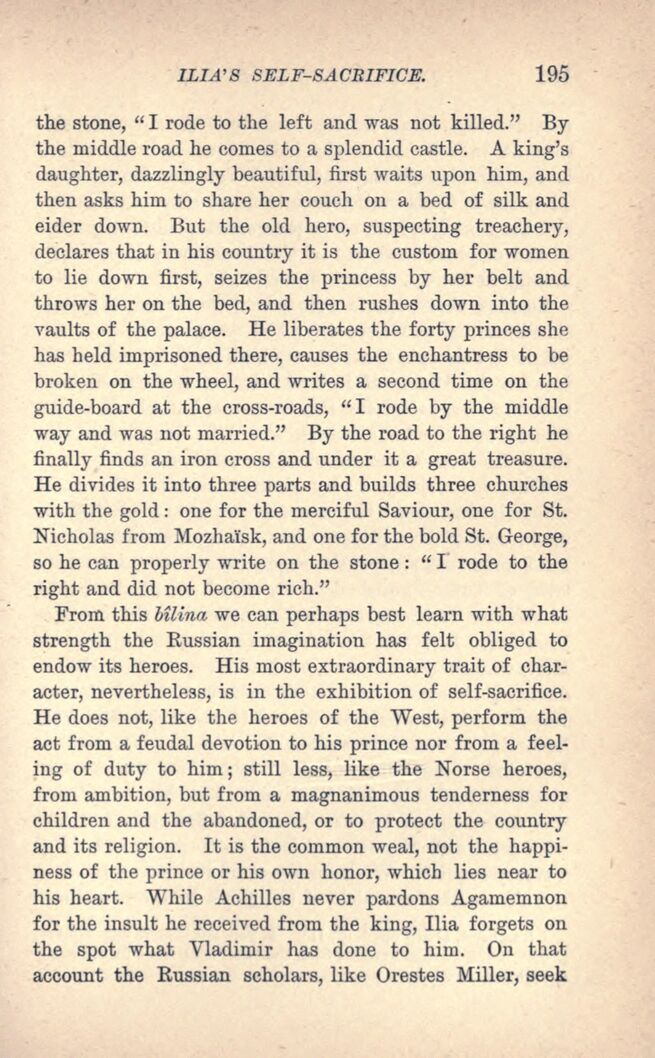
Full resolution (JPEG) - On this page / på denna sida - Impressions of Russian Literature - I

<< prev. page << föreg. sida << >> nästa sida >> next page >>
Below is the raw OCR text
from the above scanned image.
Do you see an error? Proofread the page now!
Här nedan syns maskintolkade texten från faksimilbilden ovan.
Ser du något fel? Korrekturläs sidan nu!
This page has been proofread at least once.
(diff)
(history)
Denna sida har korrekturlästs minst en gång.
(skillnad)
(historik)
the stone, “I rode to the left and was not killed.” By
the middle road he comes to a splendid castle. A king’s
daughter, dazzlingly beautiful, first waits upon him, and
then asks him to share her couch on a bed of silk and
eider down. But the old hero, suspecting treachery,
declares that in his country it is the custom for women
to lie down first, seizes the princess by her belt and
throws her on the bed, and then rushes down into the
vaults of the palace. He liberates the forty princes she
has held imprisoned there, causes the enchantress to be
broken on the wheel, and writes a second time on the
guide-board at the cross-roads, “I rode by the middle
way and was not married.” By the road to the right he
finally finds an iron cross and under it a great treasure.
He divides it into three parts and builds three churches
with the gold: one for the merciful Saviour, one for St.
Nicholas from Mozhaïsk, and one for the bold St. George,
so he can properly write on the stone: “I rode to the
right and did not become rich.”
From this bîlina we can perhaps best learn with what
strength the Russian imagination has felt obliged to
endow its heroes. His most extraordinary trait of
character, nevertheless, is in the exhibition of self-sacrifice.
He does not, like the heroes of the West, perform the
act from a feudal devotion to his prince nor from a
feeling of duty to him; still less, like the Norse heroes,
from ambition, but from a magnanimous tenderness for
children and the abandoned, or to protect the country
and its religion. It is the common weal, not the
happiness of the prince or his own honor, which lies near to
his heart. While Achilles never pardons Agamemnon
for the insult he received from the king, Ilia forgets on
the spot what Vladimir has done to him. On that
account the Russian scholars, like Orestes Miller, seek
<< prev. page << föreg. sida << >> nästa sida >> next page >>